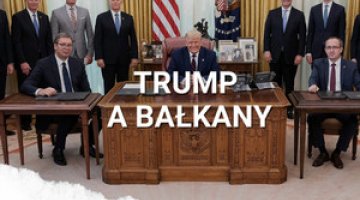Speculations on the halt of South Stream construction in Serbia
The Serbian prime minister, Aleksandar Vucic, denied rumours that South Stream construction had been suspended and stated that the investment was being carried out as planned, and any possible decision to halt the work would be taken by the Serbian government as a whole and not by its individual members. The prime minister’s statement came as a reaction to speculation that implementation of the investment could be suspended until Gazprom’s dispute with the EU is resolved. This speculation was brought about by a statement heard from Zorana Mihajlovic, deputy prime minister and minister of infrastructure. She made reference to the Bulgarian prime minister’s declaration on the suspension of South Stream’s construction and stated that the Serbian government should make the same decision, since the construction of the Serbian section will be pointless unless the investment in Bulgaria is implemented. Serbia, like those EU member states which are engaged in the project, has entrusted the European Commission with the right to renegotiate the agreements on the construction of South Stream with Gazprom.
Commentary
- South Stream is officially recognised as a strategic project in Serbia and is expected to contribute to the development of the Serbian economy. All political parties agree that the implementation of this project is necessary. There is no political force in Serbia at present that would call into question the sense of this project or the terms of gas pipeline construction proposed by Russia.
- The contradictory statements concerning the future of the South Stream project should be interpreted in the broader context of the Serbian-Russian game over the nature of their relations in the energy sector and also in the context of the domestic dispute over control of the energy sector, including the key company, Srbijagas, the Serbian partner implementing the investment. This dispute is being fought between the Serbian Progressive Party (SNS) led by Prime Minister Aleksandar Vucic and the Serbian Socialist Party (SPS) led by the Minister of Foreign Affairs Ivica Dacic.
- Serbia is insisting that Russia should pay a dividend for the shares in the energy company NIS, where Russia’s Gazpromneft is the majority shareholder. Another point of dispute is Russia’s support for the Socialists (SPS), who currently control the gas sector in Serbia (the minister for mining and energy is Aleksandar Antic from SPS, and the director of Srbijagas has kept his post due to support from Moscow). Russia has also impeded the restructuring of Srbijagas, which has been among the priorities set by Serbian government to date, since this company has been generating losses for many years (its accumulated losses at the end of 2013 reached 4 billion euros).
- The statement by deputy prime minister Mihajlovic, who is a member of SNS (the party led by Prime Minister Vucic) can also be viewed as an attempt to place pressure on the Russian side in the context of financing the investment. The construction of the Serbian section of South Stream is to be entirely financed by the Russian side. However, the Serbian government was supposed to grant loan guarantees. This would increase Serbia’s debt (which is already high, at 62% of GDP) and this would be contrary to the government’s austerity policy. The minister of finance, who is Prime Minister Vucic’s close aide, is unwilling to grant these guarantees.




